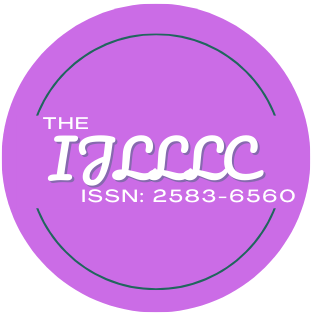| Title: THE THEME OF ‘SPIRITUAL EXISTENCE IN NATURE’ IN THE POEMS OF WILLIAM WORDSWORTH: A CRITICAL ANALYSIS |
| Authors: Dr. Ramesh Kumar Shukla, India |
| Abstract: William Wordsworth (7 April 1770- 23 April 1850), was the poet of the movement of the romantic revival. He believed that an invisible power is working behind the whole activities of Nature. He was priest, harbinger, slave as well as master of Nature. Wordsworth with S.T. Coleridge, helped to launch the Romantic Age in English with the joint publication of Lyrical Ballad in 1798. He was poet Laureate from 1843 to 1850. One of his most famous works is Prelude (1799) that is a romantic epic and semi-autobiographical poem, considered his magnum opus. He has enriched English Literature with his large number of poems like Lucy Grey (1800), To Milton (1802), The Cuckoo (1802), Ode: Intimations of Immortality from Recollections of Early Childhood (1807), The Solitary Reaper (1807), Composed Upon Westminster Bridge (1807), The World Is Too Much With Us (1807), The Daffodils (1807), and so on. It was he who hosted the flag of Romanticism. He was highly influenced with French Revolution. This is why he advocated very first that the diction of the poetry should be the diction of such person who lived in the lap of Nature. He was always in the favor of liberalism in literature. For him Nature is teacher, guide, nurse, balm and panacea of all human miseries. There is a fragrance of ecofeminism in his literary works. He established a profound connection between man, spirituality and Nature. His work reveals a deep-rooted spiritual engagement with the natural world, positioning it as a source of solace, inspiration, and moral guidance. His poetry underscores Nature’s capacity to evoke profound emotional and spiritual responses. Wordsworth’s poetry offers a compelling exploration of the intricate relationship among man, Nature and spirituality. Through his lyrical evocations of the natural world, he invites readers to embark on a journey of self-discovery and spiritual enlightenment |
| Keywords: Romanticism, Nature, Spirituality, Eco-feminism, Liberalism, Humanity. |
| DOI: https://doi.org/10.59009/ijlllc.2024.0090 PDF Download |
